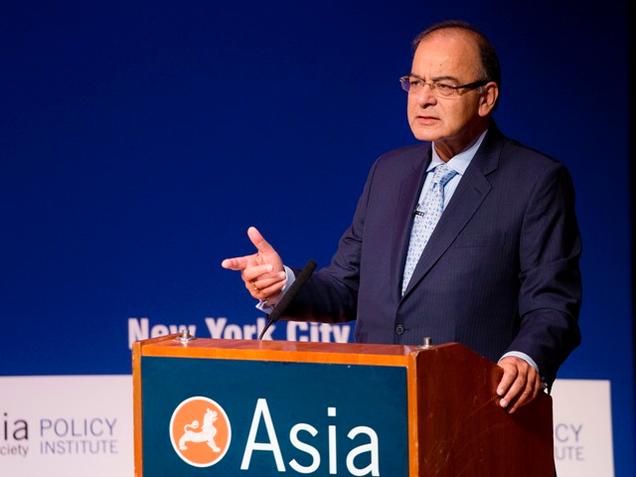
The global economic situation is “grim” and “worrisome” that has prompted the nations to put up “firewalls” around their own systems to save themselves from the slowdown and grow within the limitations, Finance Minister Arun Jaitley has said.
“If you were to ask me how’s the global situation, I think it’s grim and worrisome and what will be the state of play a year or two years from now, I don’t think anybody has been able for sure to hazard even a significant guess,” Mr. Jaitley said at the Asia Society here when asked what his prognosis is for the global economy for the next couple of years.
He said given the challenging global economic situation, the level of ambition in nations is such that even an one-two per cent economic growth is considered “good growth under the circumstances.”
“The global situation is challenging,” he said, adding that global factors have impacted India also and “they are hurting us in terms of exports in particular.
He added that the Chinese were “reasonably optimistic” because in the first quarter their economy had picked up 6.7 per cent.
He said like the rest of the world, China too has its own challenges “because a transformation is taking place in China with their emphasis toward domestic consumption and services in play.”
Mr. Jaitley said each of the regions in the world is trying to do its best within the limitations that exist.
“Low commodity prices have hurt some people and helped some people. Low oil prices have helped some people, it has hurt some people…Each one is trying to put firewalls around their own system so that within the limitations how best you can save yourself from the slowdown and grow within the limitations that the world has created for you,” he said.
Mr. Jaitley, who had last week participated in the spring meeting of the World Bank and the International Monetary Fund in Washington, addressed analysts, economic experts and business executives at a session organised by CII and the Asia Society Policy Institute in the city yesterday.
He will also be meeting investors and top business executives and address a session at the United Nations during his stay in the city.
On protectionism, Mr. Jaitley said, “I can tell you that developing economies being protectionist is much less worrisome (than) when (in) the most developed countries you hear noises of protectionism.”
“Trade is one area where every country watches its interests and that’s a freedom we allow to each other,” he said.
When asked about India’s interest in joining trade pacts like the Trans—Pacific Partnership and the Asia—Pacific Economic Cooperation (APEC) in order to be competitive, Jaitley said every economy on the international forum will be “concerned” about its own interests but there has been a lot of change in attitude in India towards trade.
He said India has moved on from being uncertain about trade with other nations to a more confident economy on the world stage now.
“With a much larger economy, I think Indian confidence in terms of dealing with other countries in terms of trade has also significantly increased. The India of 2016 is going to be significantly different from the India of the early 1990s,” he said.
Recalling the early years of the 1990s, Jaitley said there was a large body of opinion in India during that time including in the government “where we feared the unknown as to what would happen.
“We weren’t strong enough to trade freely. Over the last two decades a lot of water has flown. We have become a large economy, we positively interact with bodies of other nations,” he said.